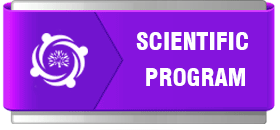
K. Gillerman*, A. Kulkarni, A. Shah, A. Gudi, R. Homburg
Homerton University Hospital, UK
Title: The impact of acupuncture on IVF success rates: A randomized controlled trail
Biography
Biography: K. Gillerman*, A. Kulkarni, A. Shah, A. Gudi, R. Homburg
Abstract
Clinical trials assessing benefits of acupuncture on IVF have differed in study design, protocol, outcome measures and commercial bias. This heterogeneity precluding firm conclusion regarding the efficacy of acupuncture in this field. To address this, international acupuncturists experienced treating women during IVF participated in Delphi questionnaires and reached a consensus protocol to be used in future research (Smith et al 2012). This was the first study to use this agreed standard protocol. This was an RCT, in which 157 women were randomised to receive either acupuncture treatment three times in the treatment cycle in addition to our standard IVF protocol (n=79) or no acupuncture treatment (n=78 ). All women in the study were undergoing their 1st or 2nd IVF cycle, were 23-43 years old with BMI<30. Those randomised to the study group (n=79) received acupuncture based on the Delphi consensus protocol, between days 6-8 of ovarian stimulation and twice on the day of embryo transfer before and after transfer. The IVF practitioner was blinded to the randomisation. The primary end point was live birth. 15/79 women in the intervention group withdrew from the study (did not complete the acupuncture treatment or had cancelled cycles) compared to 9/78 women from the control group (P <0.001). A per-protocol analysis revealed that the rate of live births (27/64, 42% vs 11/69, 15.94% P=0.03) and positive pregnancy tests (34/64, 53% vs 19/69, 27.53% ,) were significantly higher in the acupuncture group compared with the control group (p<0.005). The results of this study imply that acupuncture may be offered as a possible method of improving IVF outcome. This study was the first to follow a widely approved consensus protocol hoping to settle disagreement in the literature and resolve previous disparity.

